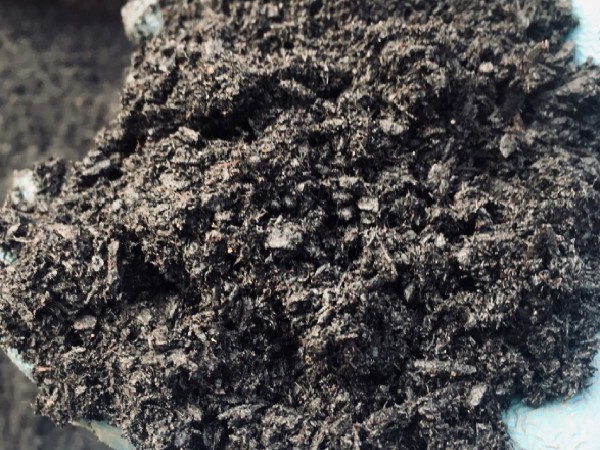If you want to build healthy soil, grow stronger plants, and reduce waste naturally, there’s no better place to start than with high-quality compost. At Aardvark Bark, we offer rich, screened compost that’s perfect for homeowners, gardeners, and landscape professionals who want to improve their soil the natural way.
Compost is more than just a soil additive—it’s a living material teeming with beneficial microbes, organic nutrients, and humus that help your soil perform at its best. Whether you're prepping garden beds, establishing new turf, topdressing a lawn, or revitalizing old soil, compost is the most effective and sustainable way to restore fertility and structure to the ground beneath your plants.
Let’s dig into what makes our compost such a valuable tool in your landscaping and gardening projects—and why it’s a favorite for professionals and do-it-yourselfers alike.
What Is Compost?
Compost is a dark, crumbly, earthy-smelling material created through the decomposition of organic matter, such as plant trimmings, food waste, grass clippings, and other green and brown materials. Our compost at Aardvark Bark is made using carefully balanced ingredients and a hot composting process that meets environmental safety standards, kills weed seeds and pathogens, and produces a consistent, nutrient-rich end product.
Once fully cured and screened, the compost is ready to be added to soil to improve structure, fertility, water retention, and microbial life.
Our screened compost is:
-
100% organic
-
Fully decomposed and cured
-
Free of visible wood chunks or trash
-
Lab-tested for quality and safety
-
Easy to apply by hand, wheelbarrow, or blower
Why Use Compost?
Healthy soil is the foundation of any successful landscape or garden, and compost is the key to creating that soil. Adding compost benefits your plants and turf in several important ways:
1. Improves Soil Structure
Compost helps heavy clay soils drain better and light sandy soils hold more water. By enhancing soil texture and aggregation, compost encourages strong root development and better oxygen exchange.
2. Increases Nutrient Content
Compost adds a slow-release supply of essential plant nutrients like nitrogen, phosphorus, and potassium, along with vital micronutrients that commercial fertilizers often lack.
3. Boosts Microbial Activity
Compost is teeming with beneficial organisms—bacteria, fungi, protozoa—that break down organic matter, support plant roots, and protect against disease. Healthy soil life is essential for long-term plant performance.
4. Retains Moisture
The organic matter in compost improves water-holding capacity, helping soil stay moist longer between watering. This leads to lower irrigation costs and better drought resistance.
5. Suppresses Disease and Erosion
Soils amended with compost are more stable, with better structure and resistance to erosion. Compost also suppresses some plant diseases by promoting healthy soil biology and improving drainage.
Common Uses for Compost
Compost is one of the most versatile landscape products available. Whether you’re planting vegetables, maintaining a lawn, or building a brand-new landscape, compost has a role to play.
Here are some of the most popular uses for compost:
Garden Beds and Vegetable Plots
Mix compost into new or existing garden beds to improve fertility and soil health. We recommend tilling compost into the top 6–8 inches of soil before planting vegetables, herbs, or flowers.
Lawn Topdressing and Overseeding
Spreading a thin layer of compost over an existing lawn helps rejuvenate tired turf, promote thicker grass growth, and support successful overseeding. It also reduces compaction and enhances drainage.
Soil Amendment for New Lawns
For new lawns, till 2–4 inches of compost into the topsoil before seeding or laying sod. This creates an ideal root zone for establishment and long-term success.
Tree and Shrub Planting
Mix compost into planting holes to improve water retention and provide nutrients during root establishment.
Raised Beds
Compost is an excellent component in DIY raised bed mixes. Combine it with topsoil and other amendments for a nutrient-rich, lightweight growing medium.
Landscape Renovations
Old or compacted soils benefit from a compost “refresh.” Blend compost into the top layer of soil before planting new trees, shrubs, or perennials.
How to Apply Compost
The amount of compost needed depends on your intended use. Here are some general guidelines:
-
Soil amendment: Mix 2–4 inches of compost into the top 6–8 inches of soil.
-
Topdressing lawns: Apply a 1/4 to 1/2 inch layer evenly across the lawn surface.
-
Mulching: Use 1–2 inches of compost around plants for weed control and moisture retention.
-
Garden beds: Mix in 1–2 inches at the start of the season, then top off between plantings.
We recommend always watering composted areas after application to help it settle and begin integrating with existing soil.
Delivery and Installation Options
At Aardvark Bark, we offer flexible options to get compost where it needs to go—fast and efficiently.
Bulk Delivery
Order compost in cubic yard quantities, and we’ll deliver it loose to your driveway, staging area, or landscape site. Perfect for contractors, large gardens, or property managers.
Blower Service
For fast, mess-free installation, our blower trucks can install compost in even coverage across beds, lawns, or landscape areas. Blower service ensures consistent depth and eliminates wheelbarrow traffic or soil compaction.
Whether you’re working on a residential garden or a large-scale landscape project, we can get compost to you and applied exactly how and where you need it.
What Makes Our Compost Different?
There’s compost—and then there’s Aardvark Bark compost. Here’s what sets our product apart:
-
Consistent Quality: Our compost is professionally processed, aged, and screened to a fine texture. You’ll never get large wood chunks or uneven material.
-
Locally Sourced: We use clean, green organic matter sourced from the Pacific Northwest to create compost that reflects our region’s ecosystem.
-
Lab-Tested: Every batch is tested to ensure it meets environmental standards for temperature, pathogens, and stability.
-
Safe and Natural: No dyes, no synthetic chemicals—just 100% organic decomposition at work.
You’ll get a product that’s nutrient-rich, easy to spread, and fully composted so it doesn’t burn plants or rob nitrogen.
Sustainable and Eco-Friendly
When you use compost, you’re doing more than improving your soil—you’re helping the planet. Composting:
-
Reduces landfill waste by recycling plant material into usable soil
-
Captures carbon and helps mitigate greenhouse gases
-
Supports biodiversity by nurturing beneficial insects, fungi, and microbes
-
Improves water efficiency in gardens and landscapes
At Aardvark Bark, we believe that great landscapes start with great soil—and great soil starts with compost. That’s why we’re proud to produce and deliver high-quality compost that meets both environmental standards and customer expectations.


